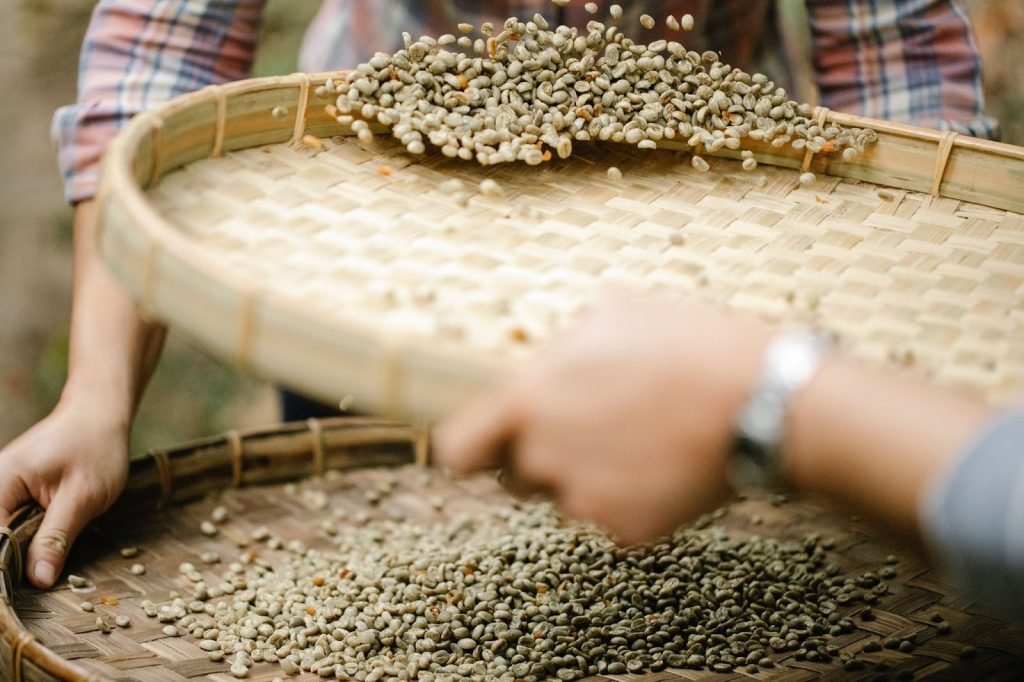Coffee beans in Indonesia are one of the export commodities internationally. Therefore, it is necessary to control the quality of coffee beans at the processing plant.
The assessment looks at the physical and taste aspects based on SNI (Indonesian National Standard), SCAA (Standard Specialty Coffee Association of America) and the quality of the taste tested by trained panelists (Grader Q certified) through sensorial analysis (organoleptic).
Quality control of coffee beans at processing plants aims to maintain the quality of the commodity before it is shipped to a country. In fact, new processing plants are required to obtain SNI certification. The certification signifies that the coffee beans are fit for trade.
Indonesia as the Largest Coffee Producer
Not many people know that the archipelago is one of the third largest coffee producing countries. This can be seen from the data of the United States Department of Agriculture (USDA), Indonesia can produce around 170 million bags of coffee with a size of 60 kg based on the period of 2022-2023.
Meanwhile, Brazil was recorded to have produced 62.6 million bags of coffee in the 2022-2023 period. Furthermore, there is Vietnam with a total coffee production of 29.75 million bags in the same period.
In agricultural commodities, coffee is the fourth largest foreign exchange earner in Indonesia. Coffee originating from Indonesia is mostly robusta varieties. But it is also famous for Mandailing coffee and luwak coffee.
Historically, the Dutch colonials ordered natives to plant the crop in the Batavia area. The harvest was so good, around the 17th-18th century the Dutch sent seeds to other areas such as Bogor and Sukabumi.
Indonesia falls within the equator, the most suitable location for growing coffee trees. The perfect area for growing coffee plants is known as the Bean Belt or The Coffee Bean-growing Belt.
There are at least 7 characteristics of coffee in Indonesia based on the region where it is grown, such as :
- Sumatra
- Java
- Bali and NTT
- Kalimantan
- Sulawesi
- Papua
These characteristics are still subdivided by variety. Most varieties are Arabica and Robusta, the difference being the planting location. Soil conditions can produce different flavors in the harvest.
Coffee Grading Method According to SCAA
The green bean classification standard is considered the best method of comparing coffee beans. This system is superior because it can account for the effect of failed beans on beverage quality.
This method uses a 300 g sample of peeled, high-grade green beans. Meanwhile, for low-grade beans, a 100g sample can be used, which is considered sufficient for grading off-grade or substandard coffee.
The beans in each sieve need to pass through a weighing process until the percentage is recorded. After that, proceed withroasting the coffee and grinding based on the appropriate size.
The milled coffee is then brewed for evaluation of beverage characteristics. The following is information on coffee grading classification according to SCAA:
- Specialty Grade Green Coffee
- Premium Coffee Grade
- Exchange Coffee Grade
- Below Standard Coffee Grade
- Off Grade Coffee
Coffee Beans Based on Indonesian National Standard
The National Standardization Agency (BSN) sets the Indonesian National Standard (SNI) in the territory of the Republic of Indonesia. However, certification of coffee products is the job of the National Accreditation Committee (KAN).
The SNI for coffee beans has been organized and compiled by the Technical Committee 65-03 Agriculture. It is a revision of SNI 01-2907:1999, coffee beans. The formulation of the SNI occurred during the RSNI consensus meeting in Jakarta (September 15, 2004). Then, there continues to be the RSNI polling stage on June 21 – August 21, 2023.
Not only coffee beans, SNI regulates classification instructions and quality requirements, testing methods, marking to the packaging process. Coffee classification according to SNI, namely:
- Type of coffee
- Processing method
- Defect value and quality
- Size
- Number of seed pieces
Coffee beans that pass the test must meet the general and specific requirements set out in SNI. However, if the seller (exporter) and buyer have a certain agreement, it is allowed not to follow SNI. Provided that the seller has an official statement from the buyer concerned.
Implementation of Quality Control of Coffee Beans in Processing Plants
In Indonesia, certification of coffee products is mandatory. Factories must apply for certification first. If the application for certification is complete and meets the requirements, it can proceed to sign a certification agreement by LSPro (SNI ISO/IEC 17065).
Not stopping there, the proposed products will be evaluated by LSPro according to SNI. Furthermore, LSPro will also conduct factory and production process inspections. LSPro will review the evaluation materials to make the final certification decision.
Despite having a certificate, the manager must continue to improve and refine the product. Recertification must be done at least before the 42nd month after the first certification.
During the certification period, there will be two surveillances to monitor the quality control of the product. SNI certification has an expiration period of 4 years with an audit visit every year.
In Indonesia, the quality distinction is divided into 3:
- Specialty coffee, passed the SNI test, Taste Test and Traceability. Usually distributed to specialty coffee shops, exports to Europe and the US.
- Premium coffee, passed SNI and taste test. Target market is local coffee shops and coffee-loving millennials.
- Regular Coffee, passed the SNI test which has a target market of HoReKa (Hotel, Restaurant, Cafe) and General.
Quality control of coffee beans in processing plants in Indonesia is of particular concern. This quality control aims to protect the rights of consumers who buy the product. (*)









